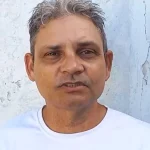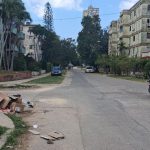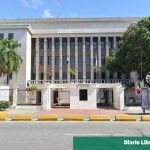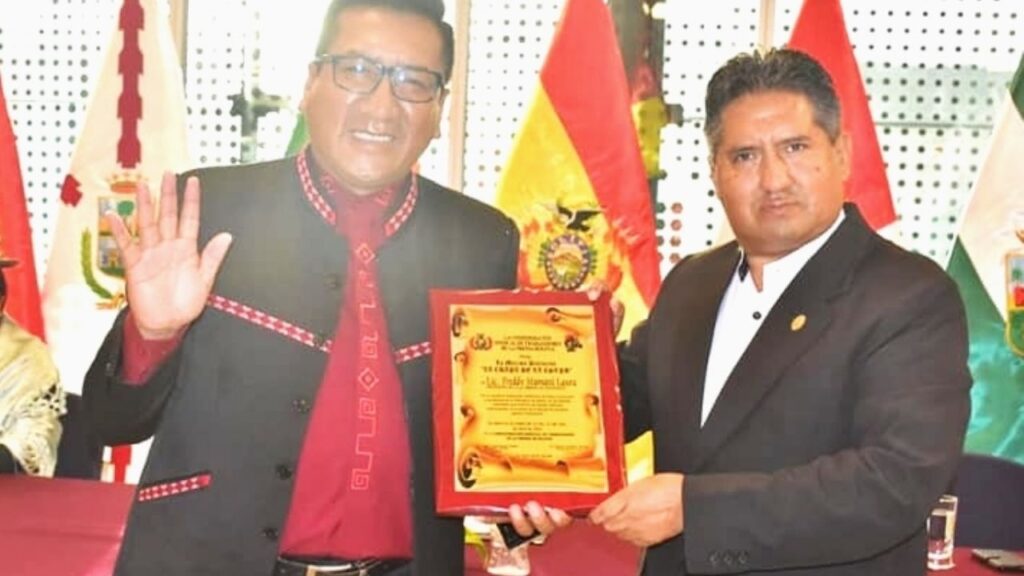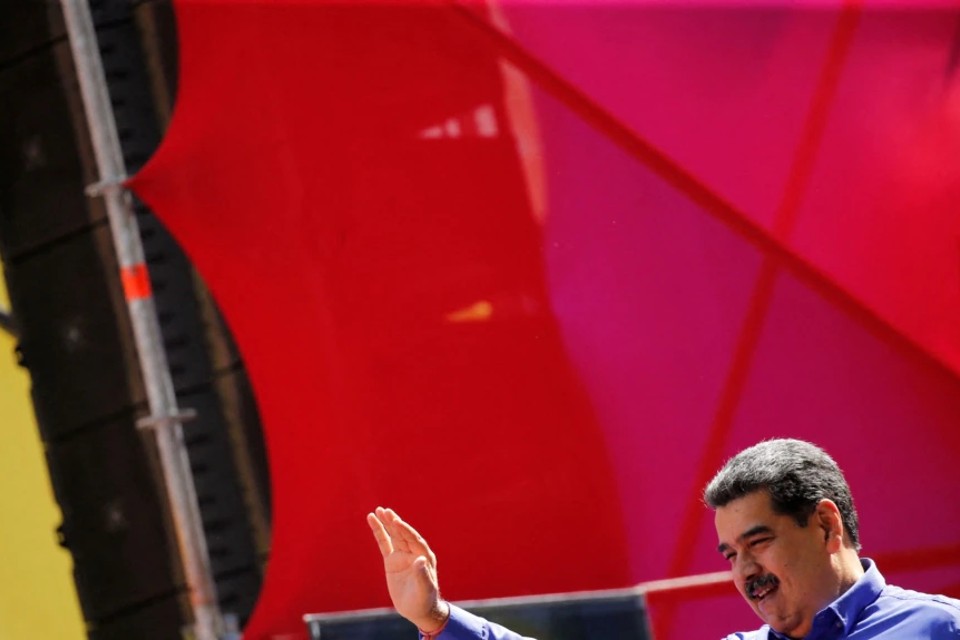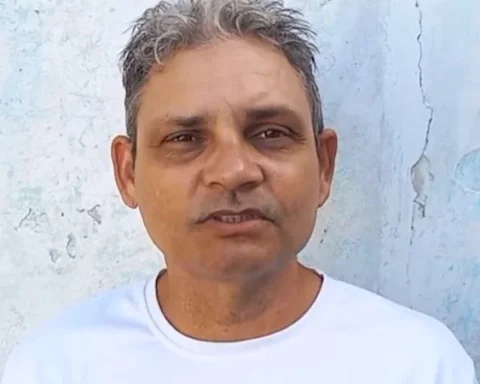Dolores Reyes, Felix Bruzzone and Kike Ferrari They talked on Thursday about the intersection between narrating and the military from different positions that were found throughout the talk moderated by the essayist and teacher Alexander Horowicz, in an afternoon in which ideas about the importance of perspective when writing, experiences in relation to militancy and ways of understanding writing as political intervention took shape, in front of a crowded attendance that has been giving volume to the 46th. International Book Fair of Buenos Aires.
The first to take the microphone was the writer and teacher elsa drucharoffcoordinator of the cycle that framed the appointment, “Dialogue of writers from Argentina” and that on Wednesday he had his first talk with Mariana Enriquez in the face of an overwhelming call. The author of “The Prisoners of the Tower” said that she had summoned Horowicz because although she did not do so today, he had been a militant for years and that formative experience permeated his essay work.

In a full Sarmiento room and after 6:30 p.m., the journalist and essayist opened the conversation by recalling that it was exactly 204 years since the birth of the philosopher Karl Marx and stated that what interested him was not whether the three guests at the table were militant or not, but to think what political relationship could be established by reading them. And he read fragments of works by Reyes, Bruzzone and Ferrari that he had selected and transcribed in a small notebook to put the framework of speeches in motion.
Horowicz He marked that the origin of the word militancy came from a soldier and that is part of his music. Thus, “a militant would be someone who prepares for war”, while narrating is an activity associated with writing: “It is impossible to change the world without trying to understand it”he pointed out and with that introduction he raised the first question about whether writing was a form of militancy.
The author of “Cometierra”, her first novel, which has already been published 10 times, said that it was “difficult to separate writing and military because writing is a tool for action” and stressed that “literature has the ability to trap a reader and lead him to change the world”. That is why she emphasized the perspective and recounted how, for example, in her fiction she worried about telling a femicide from another perspective: that of the victim’s daughter.
“Literature has the ability to catch a reader and lead him to change the world”Dolores Reyes
Bruzzone He said that he was never a member of any organization or political party and that for him the narration became a political action because he works on issues that have to do with the political life of the country. “When a sensibility appears modified by a text, it leads to other zones, militants, even though an author like me has never been a militant, and to actions that are not just narrating,” he maintained.

Ferrari said that for him politics appears when a text meets its readers, but instead warned that militancy has to do with collective action. “I think of politics as a struggle and as a class struggle,” affirmed the worker and militant of the subway line B and author of “All of us”, for whom “today of all the excluded in the world, the workers are the ones who have less voice. And he pointed out: “The working class is not in the center of the scene.”
“The working class is not at the center of the scene”keke ferrari
At that point, he asserted that “the political role of fiction is to dialogue with reality” and defined literature as “the rearguard of truth.”
“We are always at a crossroads of stories and narrations, now the narration is where the story of history is articulated. In that sense, it differentiated the narration from other texts such as the journalistic one,” he said. Bruzzone.
“Now the narration is where the story of the story is articulated”Felix Bruzzone
Reyes, an author and teacher, said she never thought she was writing a book that was going to be published. “When you write, you sit with your back to capitalism because you focus on an activity that is not for profit at that time,” he graphed and pondered the narrative because that is where the dispute of meanings that opens the fiction is located.
Horowicz defined militancy as an attempt to make sense of a narrative and left a new question: Is a militant a man or a woman who wants to share a different vision of what exists so that something else exists?

Reyes was the first to take the microphone to respond and said that she had been a militant since she was 14 years old, when she began to write newsletters or assist the coordinator of secondary schools and continues to do so, in fact she came to speak directly at a demonstration in front of Congress to repudiate police repression in Andalgalá, Catamarca.
“When you write, you sit with your back to capitalism because you focus on an activity that is not for profit at the time”Dolores Reyes
“Militancy is action. The narrative has another time, it is a break from the times of capitalism,” he defined, and immediately Horowicz asked why: “Because capitalism requires a regime that does not stop and I was able to deliver the first draft of my novel to the publisher because there was a month-long strike against Daniel Scioli in the province of Buenos Aires,” Reyes replied.
On the contrary, Ferrari said that every time his guild came into conflict, he did not write: “I can’t, a very active agenda begins in each conflict situation.”
Taking up that question by the militant, the writer recounted a situation as a synthesis of his position and brought to the room the day of December 14, 2017 when he went to demonstrate in Congress against the pension reform promoted by the macrismo and then he was direct to the National Library.
“One militates because he has no choice, because otherwise things would be worse,” he said before a room in which attendees had already joined, listening attentively standing in the background and at the entrance of the room located on the first floor. of the white pavilion.

The author of “Campo de Mayo” said that, given the stories of his table companions, he was going to have to explain why he was not a militant: “My parents are disappeared, in my house there was always talk of politics, it will be the mandate of military, I don’t know, I could have been a militant and I didn’t, I doubt, I go and see the flag and think, I doubt again. Also, perhaps there are deeper things like the fear of disappearing”.
The moderator left them one of the last questions about the figure of the militant and invited them to think about whether today when thinking of a militant it is possible not to refer to 1976.
For Ferrari, the younger generations place that figure in 2001 and insisted on the search for forms as a political task, Reyes added that this commitment to fiction was a way to get moving and get others moving. “There are always things that are set in motion when you start writing,” she stressed.
Ferrari said that when he sits down to write he makes the effort to forget that he is a Marxist and Bruzzone completed: “Reading and writing are two activities in which you have to discover something, if you start from so many certainties, it won’t work”.








